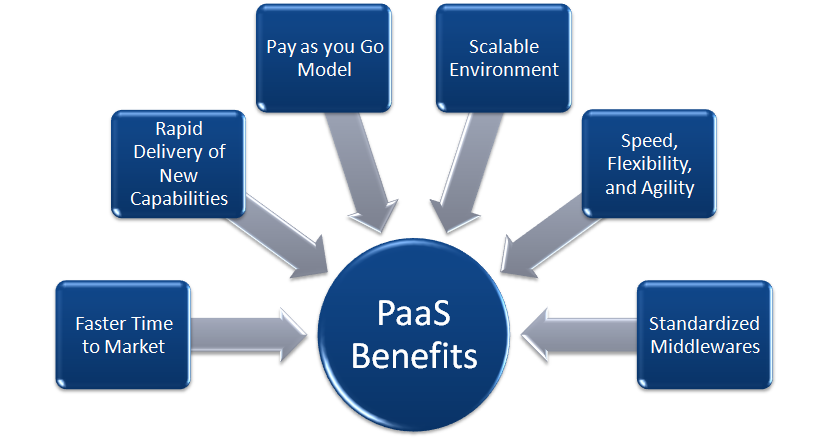Businesses can benefit significantly by shifting their essential IT infrastructure into the cloud. One of these is the platform as a service (PaaS). PaaS is a cloud-based application development framework that enables IT teams and developers to quickly create and deploy custom software programs without managing their servers, storage, and networking resources.
Scalability
The ability to scale with changing business needs is one of the most important benefits of using a PaaS solution. This is especially true for businesses needing to reach a more significant global audience. Scalability is the ability to grow your application without impacting performance or user experience. Whether you want to expand your application to run on a more extensive or capable cloud infrastructure or add resources to meet new demand, scalability can make that happen quickly and easily. This is a significant benefit for startups since it allows them to keep their applications running without putting them through downtime. Another critical advantage of PaaS is the ability to manage multiple platforms, making it easier for SAPinsider community and developers to build apps compatible with various devices and operating systems. This also helps developers make sure they can keep their apps current and meet changing industry standards. Several PaaS solutions also allow developers to use a quality gateway that evaluates and ensures that new code adheres to best practices and patterns before being deployed into the platform. This can help developers improve their skills and speed up development processes.
Flexibility
A PaaS solution enables developers to build and deploy software without worrying about maintaining the underlying infrastructure. This reduces the need for businesses to hire IT personnel and allows them to focus on other tasks. The platform itself can be customized to fit the specific needs of a business. This will enable it to work seamlessly with existing systems, reducing costs while allowing companies to keep pace with technology advancements. PaaS providers can offer various services to their customers, including managed infrastructure, design, testing, and development tools, as well as middleware and OSes for running applications. These services can help improve application quality and security and enable scalability. Another benefit of using a PaaS solution is that it allows businesses to save money on IT administration costs. These costs include server maintenance, security updates, and monitoring. This can save organizations a lot of money in the long run. Since a PaaS vendor will maintain the underlying infrastructure, they can ensure that your applications are always secure and up-to-date. Finally, PaaS solutions are scalable and highly available to manage various workloads. This makes them an excellent choice for implementing new applications.
Automation
Several types of PaaS solutions are available on the market, including application development and business process management (BPM). Using a PaaS solution can provide many benefits, from reducing the time it takes to build an app to minimizing software maintenance costs. This can be especially important for developers who work remotely. Organizations must understand their needs and goals to get the most out of a PaaS solution. They must know how adopting a suitable PaaS model can help them better than traditional local tool sets, such as improving and streamlining Java software development or facilitating complex integrations between new and legacy applications. Another factor to consider is a PaaS provider’s level of control over the hardware environment. Not all providers have the same degree of control over their infrastructure, which can negatively affect your ability to develop and deploy applications. Choosing the right PaaS provider is crucial to the success of any project. It would be best to ensure that the provider has all the functionality you require and a good service level agreement (SLA). This is important because it will protect you from any issues that might arise and keep your business running at full speed.
Security
PaaS enables businesses to develop and run web applications without costly infrastructure. This is achieved by sharing resources (such as hardware, network, and security provisions) between the application and the provider. With a PaaS solution, development teams can focus on writing and testing code rather than worrying about procuring the necessary server space and software for their programming environments. The platform also offers security controls and self-service entitlements to help keep your cloud environment secure. The key to securing a PaaS solution is finding the right tools to deploy quickly and effectively. Consider solutions that automatically detect and block attacks against your applications. In addition, you should ensure that your cloud infrastructure has CASP, logging and alerting, IP restrictions, and an API gateway to prevent unauthorized access and data breaches. It would be best to implement a centralized security operations center (SOC) to manage and monitor your entire cloud environment, devices, logs, and other security assets.
Ease of Deployment
When using a PaaS solution, users can build applications without worrying about deploying and maintaining the underlying infrastructure. The PaaS provider will care for everything from hardware, software, and operating systems to application infrastructure, middleware, and container orchestrators, allowing developers to focus on developing and deploying the needed apps. The scalability of a PaaS platform reduces the overall cost of app development, especially for distributed teams that want to create and deploy applications quickly. In addition, the service provides dynamic scaling, so users only pay for what they need. In addition to scalability, PaaS solutions are also known for their ease of deployment. They make all the necessary development tools, operating systems, and infrastructure available through a web browser, allowing users to quickly develop an entire app from anywhere with an internet connection. Another essential factor that makes PaaS products appealing is their ability to update users with the latest technology. They often incorporate component updates and only deploy them to production when they meet specific criteria, ensuring that applications are always running on the latest software and technology.





